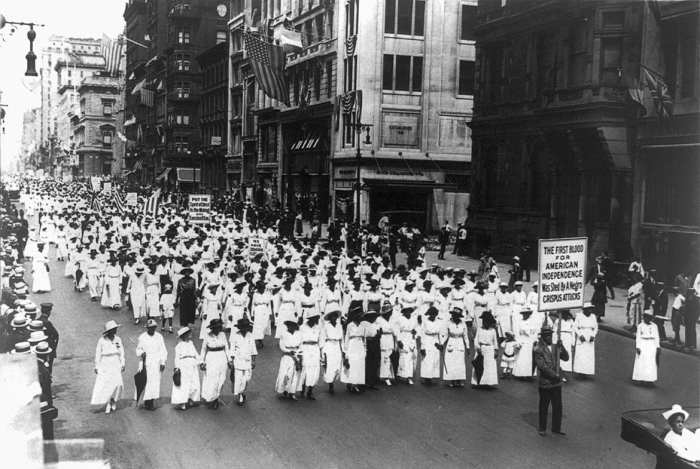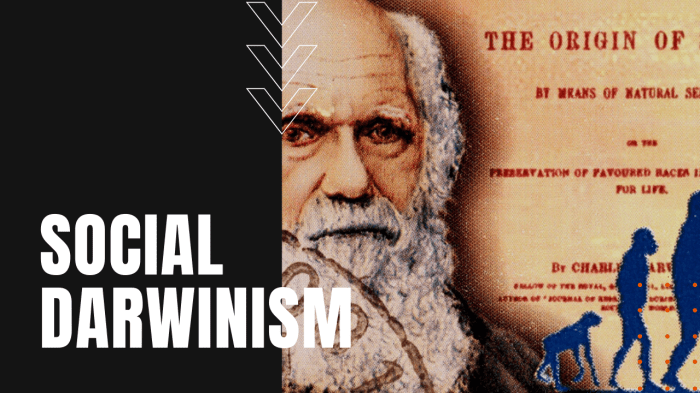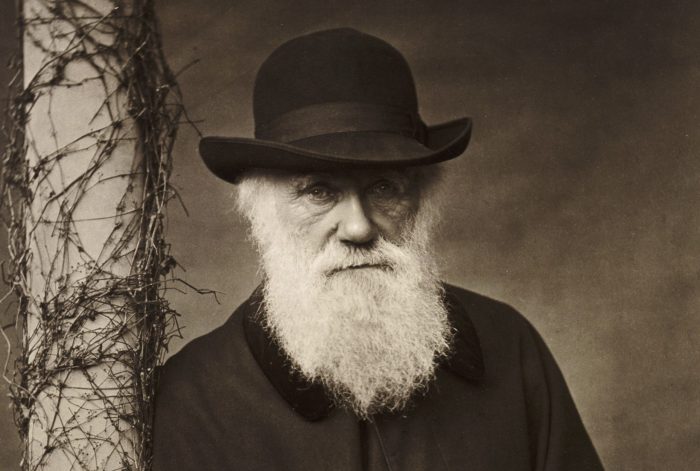Social darwinism vs gospel of wealth – Social Darwinism vs. Gospel of Wealth: Ideological Crossroads in History explores the profound influence of two contrasting ideologies that shaped social and economic thought in the late 19th and early 20th centuries. This narrative delves into the origins, principles, proponents, and societal impact of these influential doctrines, highlighting their enduring legacy in contemporary discourse.
Social Darwinism

Social Darwinism is a social theory that applies the principles of Charles Darwin’s theory of evolution to human society. It posits that the fittest individuals and groups will survive and thrive, while the less fit will perish. Key principles include:
- Natural selection: The fittest individuals have a greater chance of survival and reproduction, passing on their traits to future generations.
- Competition: Individuals and groups compete for resources, with the fittest emerging victorious.
- Survival of the fittest: The strongest and most adaptable individuals and groups survive and thrive, while the weaker perish.
Origins and Development
Social Darwinism emerged in the late 19th century, influenced by Darwin’s theory of evolution and the rise of industrial capitalism. Herbert Spencer, an English philosopher, is often credited as one of the first proponents of Social Darwinism.
Applications
Social Darwinism has been applied in various contexts:
- Economics: Justification for laissez-faire capitalism, arguing that the fittest businesses and individuals should succeed.
- Social policy: Support for eugenics, the selective breeding of humans to improve the gene pool.
- Imperialism: Legitimization of European colonialism, arguing that the fittest nations should dominate the less developed.
Impact and Legacy
Social Darwinism had a significant impact on society:
- Justification for inequality: Reinforced the idea that the wealthy and powerful were naturally superior.
- Racial and ethnic discrimination: Used to justify the oppression of minority groups, arguing that they were inherently inferior.
- Social Darwinism has influenced contemporary social and economic thought, with echoes of its principles found in debates on topics such as welfare and immigration.
Gospel of Wealth
The Gospel of Wealth is a social and economic philosophy that promotes the accumulation and distribution of wealth by the wealthy as a moral duty. Key tenets include:
- Stewardship: The wealthy have a responsibility to use their wealth for the benefit of society.
- Philanthropy: The wealthy should donate a portion of their wealth to charitable causes.
- Economic growth: Wealth creation benefits all of society, as it creates jobs and stimulates economic activity.
Origins and Development
The Gospel of Wealth emerged in the late 19th century, influenced by the rise of industrial capitalism and the growing concentration of wealth in the hands of a few individuals. Andrew Carnegie, a Scottish-American industrialist, is often considered the most prominent proponent of the Gospel of Wealth.
Key Proponents
- Andrew Carnegie: Argued that the wealthy had a moral obligation to use their wealth to improve society.
- John D. Rockefeller: Believed that philanthropy could solve social problems and create a more just society.
- Russell Sage: Advocated for responsible wealth management and the use of wealth for the public good.
Impact on Economic and Social Policies, Social darwinism vs gospel of wealth
The Gospel of Wealth has influenced economic and social policies:
- Progressive taxation: Support for progressive taxation to redistribute wealth and fund social programs.
- Philanthropic foundations: The establishment of philanthropic foundations to address social issues.
- Social welfare programs: Advocacy for government programs to provide assistance to the poor and needy.
Comparison of Social Darwinism and Gospel of Wealth: Social Darwinism Vs Gospel Of Wealth

Key Principles and Beliefs
Social Darwinism emphasizes competition and the survival of the fittest, while the Gospel of Wealth emphasizes cooperation and the moral obligation to use wealth for the benefit of society.
Overlap and Divergence
Both ideologies share a belief in the importance of individual responsibility and the role of wealth in society. However, they differ in their views on:
- Competition vs. cooperation: Social Darwinism promotes competition, while the Gospel of Wealth advocates cooperation.
- Natural selection vs. stewardship: Social Darwinism views natural selection as the driving force of social progress, while the Gospel of Wealth emphasizes stewardship and the moral responsibility of the wealthy.
Applications and Impact
Social Darwinism has been used to justify inequality and oppression, while the Gospel of Wealth has inspired philanthropic efforts and social welfare programs. Both ideologies have had a significant impact on social and economic policies.
Influence on Modern Society

Social Darwinism and the Gospel of Wealth continue to influence modern society:
- Social Darwinism: Echoes of Social Darwinism can be found in debates on topics such as welfare and immigration, with some arguing that the fittest should be rewarded and the less fit should fend for themselves.
- Gospel of Wealth: The Gospel of Wealth has influenced the development of philanthropic foundations and the concept of corporate social responsibility, with businesses increasingly expected to use their wealth to address social issues.
Ongoing Debates and Controversies
Both Social Darwinism and the Gospel of Wealth remain controversial ideologies, with ongoing debates about their impact on society:
- Social Darwinism: Critics argue that it promotes inequality and justifies oppression, while proponents argue that it encourages competition and innovation.
- Gospel of Wealth: Critics argue that it perpetuates the concentration of wealth and allows the wealthy to control social and economic policies, while proponents argue that it promotes philanthropy and social responsibility.
Helpful Answers
What is the central tenet of Social Darwinism?
Social Darwinism posits that human societies evolve through a process of natural selection, whereby the fittest individuals and groups thrive at the expense of the less fit.
How did the Gospel of Wealth influence economic policies?
The Gospel of Wealth advocated for the accumulation of wealth by the wealthy as a means of benefiting society through philanthropy and investment.
What are the key differences between Social Darwinism and the Gospel of Wealth?
While both ideologies emphasized the importance of individual competition, Social Darwinism focused on the survival of the fittest, while the Gospel of Wealth prioritized the use of wealth for social good.

